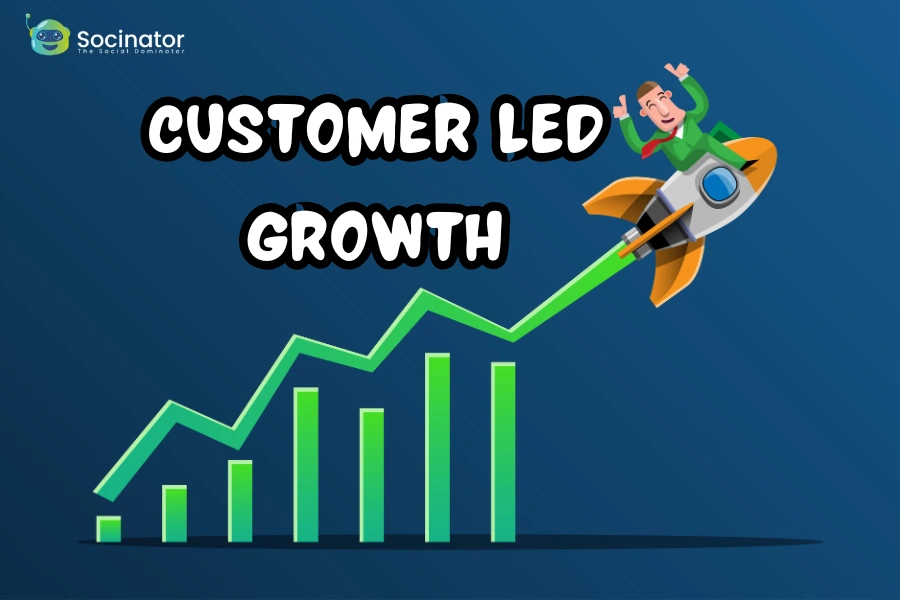Building and nurturing online communities has become a cornerstone for businesses, organizations, and influencers alike. Whether you’re fostering a network of loyal customers, engaging with passionate followers, or facilitating discussions within a professional community, effective community management is key to success. However, the mere presence of a community management tool is not enough; it’s about leveraging proven principles and implementing strategic tips to truly elevate your approach.
Whether you’re a seasoned community manager looking to refine your strategies or a novice seeking insights into the world of community management, this guide is crafted to empower you with actionable advice and insights that can make a tangible difference.
Join us as we navigate through the intricacies of community management, uncovering the secrets to fostering vibrant, engaged, and thriving social media communities. Let’s discover how the application of proven principles and strategic tips can not only enhance the functionality of your community management software but also contribute to the long-term success and growth of your online community.
Listen To The Podcast Now!
What Are Community Management Tools?
A Community Management tool is a digital solution designed to facilitate and enhance the interactions within an online community. It empowers community managers to streamline communication, moderate discussions, and raise positive engagement among members.
These tools often include features for member collaboration, content moderation, analytics, and feedback gathering. By providing a centralized platform- a community management tool ensures smoother coordination, fostering a sense of belonging and shared purpose. Overall, these tools play a vital role in creating vibrant and well-maintained online spaces, allowing communities to thrive and evolve harmoniously.
Community management is the practice of constructing and overseeing a community on social media platforms, aiming to cultivate loyalty and establish robust connections with the audience. This audience comprises followers, customers, employees, and business associates.
The process encompasses three primary activities:
- Observing and actively listening to your audience on social media.
- Responding to the audience effectively on social media.
- Sustaining ongoing interactions with the audience.
Brands and businesses adopt community management tools to actively involve a group of individuals in promoting their shared interests, values, and objectives.
Social Media Community Management Use Cases
Social media community management serves various purposes, each playing a crucial role in enhancing business operations:
Customer Service:
Social media platforms offer a direct and immediate channel for customers to reach out to businesses with questions, concerns, or issues they may have with products or services. By actively monitoring and responding to customer inquiries on platforms like Facebook, Twitter, or Instagram, businesses can provide timely assistance, resolve issues efficiently, and demonstrate their commitment to customer satisfaction.
Sharing Product Ideas And Feedback:
Social media communities serve as valuable forums for businesses to gather feedback on new products or services, as well as to conduct beta testing. Engaging with their online communities, businesses can solicit input, suggestions, and critiques from customers, helping them refine their offerings and tailor them to better meet customer needs and preferences.
Customer Acquisition:
Engaging with potential customers within social media communities allows businesses to showcase their products or services in a non-intrusive and engaging manner. By participating in relevant conversations, sharing valuable content, and building relationships with community members, businesses can attract new customers and generate leads organically, ultimately driving sales and revenue growth.
Customer Engagement:
Establishing and maintaining active communities on social media platforms enables businesses to foster ongoing connections with their customers. By regularly sharing updates, promotions, and relevant content, as well as encouraging dialogue and interaction among community members, businesses can keep their audience engaged, strengthen brand loyalty, and enhance the overall customer experience.
Employee Engagement:
Social media communities can also play a crucial role in employee engagement efforts. By showcasing company culture, values, and achievements on social media platforms, businesses can create a positive brand image that resonates with both current employees and potential candidates. This helps in retaining existing talent and attracting top talent by positioning the organization as an employer of choice within the industry.
The significance of social media community management for businesses cannot be overstated, as it plays a pivotal role in customer satisfaction, product development, lead generation, brand loyalty, and employee relations.
Benefits Of Social Media Community Management For Brands
 Engaging in community management tools opens up valuable opportunities to connect with your brand’s social media followers, establishing a meaningful online presence whenever they seek interaction. An impressive 88% of community managers- acknowledge the significant role- branded communities play in achieving business goals. Here are some key advantages that community management can bring to your brand:
Engaging in community management tools opens up valuable opportunities to connect with your brand’s social media followers, establishing a meaningful online presence whenever they seek interaction. An impressive 88% of community managers- acknowledge the significant role- branded communities play in achieving business goals. Here are some key advantages that community management can bring to your brand:
Regularly Gather Customer Feedback:
Engaging in real-time conversations encourages customers to share their thoughts about your brand on social media. While feedback can vary, it provides a genuine assessment of- your brand’s perception and position in the market. Utilizing powerful tools like Socinator ensures streamlined feedback, empowering your brand to stay responsive and connected with your audience.
Build And Enhance Customer Relationships:
Community management tools enable timely responses and support, helping you understand your customers’ preferences, likes, and expectations. By fostering strong relationships, you can nurture loyalty and facilitate the development of both one-to-one and one-to-many customer connections.
Boost Brand Recall:
Studies reveal that brand recall influences 38.7% of brand perceptions. Effective community management tools maintain your reputation on social media, converting more customers into advocates. This, in turn, positively impacts your sales.
Promote Brand Authenticity:
In the era of social media transparency, authenticity is important. Authenticity builds brand loyalty, with 90% of consumers considering it a decisive factor in brand selection. Millennials and Gen Z, in particular, value genuine and organic brands over those that appear perfect but lack authenticity.
By embracing community management, your brand can not only navigate the challenges of social media- but also capitalize on the numerous benefits that arise from authentic, engaged interactions with your audience.
6 Principles Of Effective Community Management On Social Media
1. Establish Clear Guidelines:
Initiate the groundwork for effective community management on social media platforms by outlining comprehensive guidelines. If you have a team, provide them with clear rules when representing your brand online. These guidelines should cover aspects such as:
- Identifying authorized team members for engagement within the online community.
- Defining the appropriate language and tone, emphasizing the importance of respect and positivity.
- Establishing a timely response protocol, such as addressing the initial fifty comments within three hours of posting.
- Communicating these guidelines to new team members upon their onboarding.
- Implementing a hierarchical structure for addressing and resolving issues and complaints.
- Detailing a procedure for handling negative comments and customer complaints on social media.
Utilizing an automation tool like Socinator- proves invaluable in crafting effective community management guidelines and improving your online presence. It automates the identification of authorized team members, ensures a consistent and positive tone, and expedites timely responses.
This tool seamlessly integrates a structured approach, addressing issues, managing negative comments, and maintaining a positive online presence. Elevate your social media strategy effortlessly with Socinator’s comprehensive capabilities.
Socinator: Social Media Automation
 Socinator is a robust Social Media Automation tool designed to simplify and enhance your online presence. From automated posting to engagement tracking, Socinator empowers users to streamline their social media activities across various platforms. Boost efficiency, save time, and elevate your social media strategy with the best community management software, Socinator with its comprehensive automation features.
Socinator is a robust Social Media Automation tool designed to simplify and enhance your online presence. From automated posting to engagement tracking, Socinator empowers users to streamline their social media activities across various platforms. Boost efficiency, save time, and elevate your social media strategy with the best community management software, Socinator with its comprehensive automation features.
- Engagement Automation: With Socinator, users can automate various engagement activities such as liking, commenting, following, and messaging within their communities. This helps users maintain an active presence, foster connections with followers, and encourage participation in discussions.
- Content Scheduling: The platform allows users to schedule and automate the posting of content across multiple social media channels. Users can plan their posts, ensuring consistent and timely communication with their community members without manual intervention.
- Audience Segmentation: Socinator provides tools for segmenting and targeting audience segments based on demographics, interests, behaviors, and engagement levels. This allows users to personalize their interactions and deliver relevant content to different segments of their community.
- Analytics And Insights: Socinator offers robust analytics and reporting features to track the performance of community engagement efforts. Users can monitor key metrics such as engagement rates, reach, impressions, and follower growth to evaluate the effectiveness of their strategies and identify areas for improvement.
Socinator serves as a comprehensive community management tool that empowers businesses and individuals to effectively engage with their online communities, nurture relationships, and drive meaningful interactions across social media platforms. With its automation capabilities, analytics insights, and social media targeting of audience features, Socinator enables users to build thriving communities and achieve their business objectives.
2. Identify Your Target Audience Networks:
Pinpoint the primary channels where your target audience actively participates. Identifying your target audience is essential principle and strategy for building a social media community. For instance, if your goal is to connect with millennials and Gen Z, prioritize platforms like Instagram, Netflix, Facebook, and Twitter.
3. Define Success Metrics:
Regularly track key performance indicators like likes, shares, comments, and mentions with the Socinator tool. As a community manager, these metrics offer valuable insights, guiding you to enhance audience engagement effectively.
4. Emphasize Trending Content:
Recognize the transient nature of social media content, where what’s popular today may lose relevance tomorrow. Stay attuned to the latest news, trends, music, hashtags, and influential personalities that capture your audience’s attention.
5. Initiate Regular Audience Interactions:
Facilitate meaningful interactions with both existing and potential customers on social media platforms. Introduce relevant topics and discussions aligned with your brand, fostering a connection that resonates with your audience on a deeper level.
6. Monitor And Moderate Audience Responses:
Given the inherent potential for negativity on social media, it is crucial for community managers to attentively listen to and address negative comments and reactions from the audience. How you respond to such situations can significantly impact your brand’s online reputation.
Read More
Social Media Communities- Meaning, Types, How To Build, & More!
7 Proven Strategies To Build Your Social Media Community
The Ultimate Guide to Community Management Social Media
3 Tips To Grow Your Social Media Communities
 Top Three Tips to Boost Your Social Media Communities:
Top Three Tips to Boost Your Social Media Communities:
1. Tackle Tough Questions Head-On:
Community management can be a challenging role, particularly when faced with the unpredictability of online interactions. Dealing with negative comments is one thing, but addressing difficult queries that challenge your brand’s authenticity or integrity requires finesse.
2. Appreciate And Reward Your Fans:
Amidst the occasional negative audience, your brand undoubtedly has loyal fans. It’s crucial to recognize and reward them for their support. Publicly acknowledge them through tags and mentions and express gratitude by offering special discounts, coupons, or personalized notes sent directly to them.
3. Equip Your Community Manager With Powerful Tools:
Providing your community manager with a robust AI-enabled community management tool, such as Socinator, can significantly enhance their effectiveness. These tools empower them to identify customers requiring attention, facilitate community engagement, and streamline moderation and maintenance tasks, ultimately making their jobs more efficient and productive.
With its advanced features, adds an extra layer of efficiency to community management, ensuring your team has the right resources to foster a thriving online community.
Wrapping Up
Elevating your social media community management tool, such as Socinator, is not just a strategic move but a transformative journey. By implementing tips and principles, you’ve empowered your approach, fostering a more engaged and thriving online community.
Remember, continuous adaptation and refinement, coupled with powerful social media automation tools like Socinator, are the keys to staying at the forefront of social media dynamics. As you navigate the evolving landscape, may your community management tool, with Socinator’s assistance, be the catalyst for meaningful connections and sustained success in the digital realm.
Elevate, engage, and excel in cultivating a vibrant online community!






